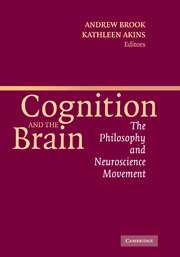12 - Making Consciousness Safe for Neuroscience
Published online by Cambridge University Press: 02 February 2010
Summary
Work on consciousness by neurophilosophers often leaves a certain group of other philosophers frustrated. The latter group of philosophers, which includes people such as Thomas Nagel, Frank Jackson, Colin McGinn, Ned Block, and David Chalmers, believe that consciousness is something quite different from the brain circuitry or other processes that are active in cognition. They feel frustrated because work on consciousness by neurophilosophers usually ignores this view, yet proceeds from an assumption that it is wrong. This work tends to assume, simply assume, that neuroscience not only will identify neural correlates of consciousness (which virtually all parties to the current consciousness debate now accept), but also (perhaps with the assistance of cognitive science) will eventually tell us what consciousness is. That is to say, it assumes that consciousness simply is a neural/cognitive process of some kind. Even more, it assumes that consciousness is a neural/cognitive process similar in kind to the processes that underlie (other aspects of) cognition and representation. That is to say, it assumes that consciousness is an aspect of general cognition.
Consciousness has appeared to be weird and wonderful to many people for a very long time. Daniel Dennett captured the feeling very nicely many years ago: ‘Consciousness appears to be the last bastion of occult properties, epiphenomena, immeasurable subjective states – in short, the one area of mind best left to the philosophers. Let them make fools of themselves trying to corral the quicksilver of “phenomenology” into a respectable theory’ (1978a, p. 149).
- Type
- Chapter
- Information
- Cognition and the BrainThe Philosophy and Neuroscience Movement, pp. 397 - 422Publisher: Cambridge University PressPrint publication year: 2005
References
- 1
- Cited by



